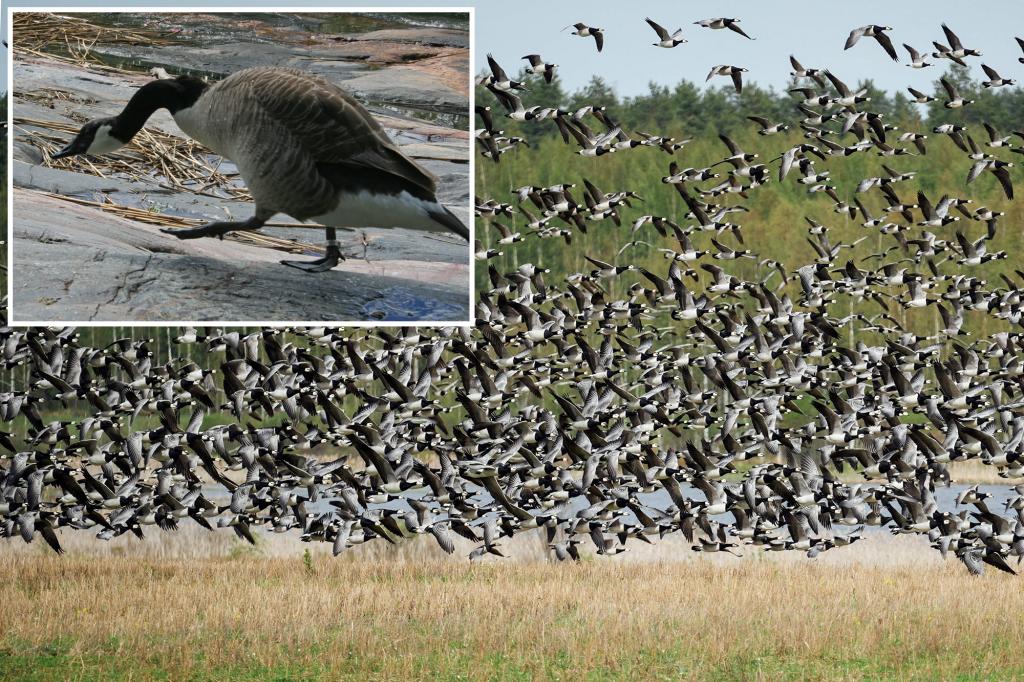Foie gross!
A popular beach in Finland has been overrun by massive loads of goose droppings, leaving sunseekers tiptoeing through a minefield of poop as officials desperately scramble to clean up the repugnant mess.
Hietsu Beach in Helsinki has turned into an avian dump site in recent years as thousands of buxom barnacle geese continue to flock to the shoreline to escape the city’s scorching summer heat, the New York Times reported.
“There can be a shocking amount of poop,” said Jukka Lundgren, manager of Helsinki’s public beaches, noting that some beaches get buried under more than 40 pounds of bird waste each day.
Lundgren, who has spent nearly two decades preventing the summer paradise from becoming a poop-plagued haven, said his team is constantly searching for more efficient ways to tackle the rampant rise in feathered feces left by the white-faced, black-backed birds.
A wheeled cage – resembling an old-fashioned lawn mower – was created by beach staff and introduced this year to sift the soiled sands and whisk up the droppings.
But the innovative device now sits in storage after the maintenance crew found it too heavy to drag across wet sand – leaving workers to scoop up the putrid-smelling mess with slotted shovels, the outlet reported.
“It’s not bad work,” crew leader Minni Aakko said.
“But it’s not my favorite job here.”
Other failed ideas included mixing the feces into the sand, using sea eagle calls to scare off the geese, and deploying trained patrol dogs – though the latter was ultimately deemed too expensive, according to the outlet.
The messy situation has also turned into a nightmare for sunbathers and families, who have been forced to scour the sand and grassy parks before enjoying the region’s famously short – and increasingly hot – summer season.
“You have to watch your every step,” Pauli Puriava told the outlet while biking to Hietsu Beach with his wife and two young kids.
“Wherever you go outdoors in Helsinki, there is nowhere without goose poop.”
An estimated 5,300 geese were recorded in the Helsinki area last July, according to the Finnish Environment Institute.
Read the full article here


